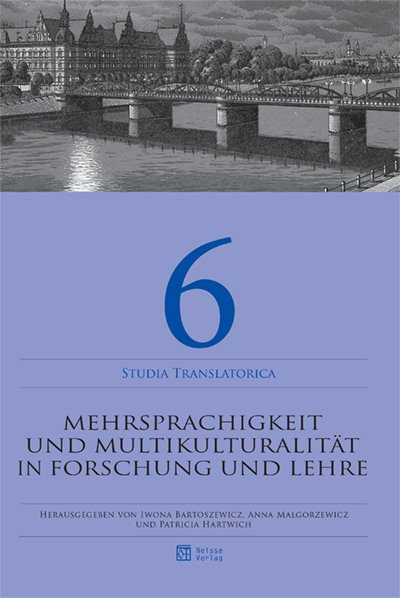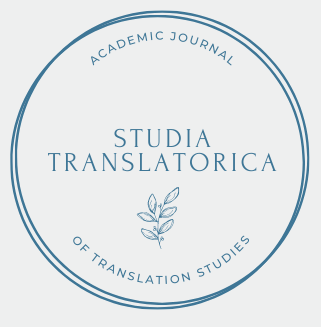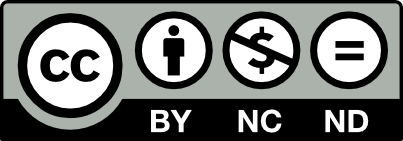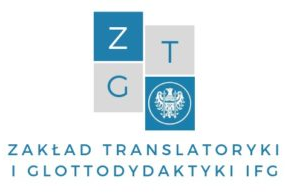
Studia Translatorica
Issue 6 (2015): Mehrsprachigkeit und Multikulturalität in Forschung und Lehre
Edited by: Iwona Bartoszewicz, Anna Małgorzewicz and Patricia Hartwich
Herausforderungen für die Entwicklung akademischer Multiliteralität: Die Rolle der Muttersprache beim Schreiben in der Fremdsprache / Challenges for the development of academic multiliteracy: The role of the L1 in L2 writing
DOI: --- (published online: 2020-07-30)
Keywords: multiliteracy, L2 writing, translation, epistemic function, language proficiency, translation competence
Academic multiliteracy, i.e., the ability to read, write and learn from academic texts in more than one language, including English as the lingua franca of international scientific communication, is a challenging requirement for both students and scholars in an increasing number of disciplines. Although the L1 undeniably plays a role in L2 reception, learning and composing processes, resorting to one’s L1 for these purposes has been seen as rather negative in most foreign language instruction paradigms. Empirical investigations of L1 use in L2 writing processes have revealed, however, that resorting to the L1, including translating from the L1, is a process that occurs naturally in L2 writing and does not necessarily have only negative effects on L2 text quality but may also lead to positive transfer and support the epistemic function of writing. This article provides an overview of empirical research into the use of the L1 in L2 composing processes differentiating between the functions for which the L1 is used in L2 composition and taking into account writer-related variables such as composing competence, L1 and L2 language proficiencies, translation competence and the language(s) in which material that the writer uses is composed. From the findings obtained, pedagogical implications will be derived for L2 writing and translation instruction.
Eyetracking Translatorik – Ein Erfahrungsbericht / Eye tracking translation studies: Experience-based report
DOI: --- (published online: 2020-07-30)
Keywords: anthropocentric translation studies, translation, eye tracking, parameters
Whoever has expected or is still expecting a big bang from translationally-oriented eye tracking research will be disappointed. Those, however, who treat results from reliable scientific experiments as a scientific “puzzle” will undoubtedly notice a certain recognisable schema that emerges from arranged elements. Unfortunately, some results of eye tracking experiments published recently are of highly speculative character. At the bottom of this status quo there often is an “unclear” eye tracking research methodology. In this article, we present our conclusions from methodological reflection drawn on our several years’ eye tracking experience
Das translationsdidaktische Potenzial politischer Reden / The usefulness of political speeches for the teaching of translation
DOI: --- (published online: 2020-07-30)
Keywords: political speeches, translation didactics, language for special purposes (LSP), rhetorical questions, history of translation
This contribution outlines some possible uses of political speeches in the context of the education of translators. Three case studies are discussed: 1. The translation of political speeches can be used as an introduction to the translation of LSP texts, as speeches reveal features of general language and LSP. 2. Multilingual translation corpora, for example, the speeches of the European Parliament, can be used to illustrate specific translation problems of argumentative texts. 3. Historical examples, for example, translations of speeches given during the French Revolution, can show how political rhetoric was spread within Europe via translations.
Stegreifübersetzen resp. Blattdolmetschen – Versuch einer typologischen Zuordnung / Stegreifübersetzen or Blattdolmetschen (sight translation or interpretation): An attempt to typologically anchor this special type of translation
DOI: --- (published online: 2020-07-30)
Keywords: sight translation, translation task, system of translation rules and relations, transfer procedures: simulation, description, explication, synthesis, transmediality
The following paper presents translation in general as a special sort of communication in which communication is not only the aim of translation but also its main motivation. Moreover, communication is regarded as the decisive factor for the typological anchoring of sight translation and the main argument for classifying it as a type of interpretation, i.e. as a special kind of oral communication. Such categorisation of sight translation places it in opposition to the existing definitions by O. Kade, Chr. Parkin, S. Reinart and others. In this sense, the analysis, interpretation and the cognitive reconstruction of the original text are always performed by the interpreter for the purpose of the secondary and autonomous communication, and for a secondary and equally autonomous addressee. The primary addressee of the original text is in every case a different, autonomous actant of the communication who respects their own language, culture, communication, reality and anthropological uniqueness. The autonomy of the secondary communication, its oral realisation based on equally oral target text speaks univocally for the typological identification of sight translation as a type of interpretation. The argument used by other researchers that the original text is in every case a written text, does not necessarily lead to the conclusion that “sight translation” must be classified as a written translation. In this paper, all arguments used for the typological identity of sight translation as a type of interpretation are directly derived from the paradigm characterizing anthropologically centred translation studies which is an autonomous discipline of science in Poland.
Von alkoholfrei bis zartbitter. Kontrastive Betrachtungen zu einem häufigen Wortbildungstyp / From alcohol-free to bittersweet: A contrastive analysis of a common type of word formation
DOI: --- (published online: 2020-07-30)
Keywords: compound adjectives, structural groups, semantic relationships, Czech equivalents
In German, compounding is a very productive type of word formation used for creating names of product properties. Circa 500 compound adjectives are divided into five structural groups. The frequency of both components of compound adjectives is examined, and their semantic relationships are characterized. The individual structural types are assigned equivalents in Czech, in which compound adjectives are relatively rare. The most frequent counterparts are phrases whose core – an adjective – is determined by an adverb, a noun or a prepositional phrase in apposition
Einige Anmerkungen zur interkulturellen Kompetenz und deren Anwendungsmöglichkeiten in der Dolmetsch- und Übersetzungspraxis / Intercultural competence and its applications in interpreting and translation practice
DOI: --- (published online: 2020-07-30)
Keywords: intercultural competence, critical incident analysis, misunderstandings in intercultural communication, translator’s and interpreter’s competence
The aim of the paper is to discuss whether and to what extent intercultural competence can be used by the translator or interpreter to prevent misunderstandings in the communication process. First, the author examines the term “intercultural competence”, focusing on the model developed by Jürgen Bolten. Then, he gives a short description of the critical incident analysis, a method selected for this study. Finally, he presents two case studies and shows what the translator/ interpreter can do to eliminate the problems. The conclusion is that the model of intercultural competence by Jürgen Bolten, which was originally designed for intercultural communication, can also be applied in its entirety to translators and interpreters and that the importance of intercultural competence in interpreting and translation depends on whether the interpreting or translation process is anchored in a broader communication context or not.
Polnische sprachliche Joker und ihre Wiedergabe im Deutschen / Polish language jokers and their German counterparts
DOI: --- (published online: 2020-07-30)
Keywords: translation, verbal denominative derivatives, Polish language jokers, euphemisms
The present article focuses on the so called “language jokers”, i.e. Polish verbs that are used universally, often as euphemisms, and that can substitute other verbs. They mostly belong to colloquial language, partly slang, and they are characterised by considerable expressive power. These verbs, preceded by prefixes, create more and more complex and potentially open sequences. The article presents such verbs, together with their counterparts. Moreover, the attempt has been made to answer the question what gets lost or distorted in their translation. The article also discusses if the phenomenon of language jokers is equally common in other languages.
Versuch einer Messung der dänisch-norwegischen lexikalischen Parallelität / An attempt to measure the parallelism between Danish and Norwegian lexemes
DOI: --- (published online: 2020-07-30)
Keywords: the Scandinavian languages, interference, parallel corpora, false friends
The paper points out the parallelism of Danish-Norwegian lexis as found in several dictionaries. The author’s aim was to ascertain the most spectacular Danish-Norwegian differences and to provide the number and per cent of them. The research shows that due to the interference, one should not learn two Scandinavian languages in parallel, at the same time, but only one of them. This way should help students to communicate in all Central Scandinavian countries.
Bemerkungen zu sprachvergleichenden Aspekten der beidseitigen Übersetzung (Deutsch – Polnisch) im Kontext der ästhetisch-plastischen Chirurgie / Comments on cross-linguistic aspects (German – Polish) of bilateral translation in the context of aesthetic plastic surgery
DOI: --- (published online: 2020-07-30)
Keywords: medical terminology, translation difficulties, derivation, comparative linguistics, equivalent terms
Since aesthetic plastic surgery has heterogeneous, inconsistent terminology, this area needs a great deal of attention and a deep analysis. This article is about equivalent terms (equivalence of terms) and a comparative analysis of them (on the example of German and Polish). Characteristic of this area are foreign influences, a large number of neologisms and a partial lack of peculiar (national) equivalent lexemes or morphemes.
Deutschlands Recht außerhalb Deutschlands. Ausgewählte usuelle Wortverbindungen im BGB und deren Wiedergabe in polnischen Übersetzungen / The German law outside Germany. Usual word combinations in the German Civil Code and their Polish translations
DOI: --- (published online: 2020-07-30)
Keywords: legal language, civil law, legal translation, usual word combinations
The article focuses on the German Civil Code and its translations into Polish. After it came into force in 1900, the Civil Code was also binding in the western parts of contemporary Poland until it was repealed by a unified Polish Civil Code after the Second World War. Selected usual word combinations in the German civil law have been analysed, in order to check whether their Polish counterparts are still usual in the Polish legal language. Therefore the article deals with a question which according to Lombardi’s opinion (2007: 119) is a desideratum research.
Übersetzungsfehler und ihre Folgen in der Praxis / Translation errors and their consequences in practice
DOI: --- (published online: 2020-07-30)
Keywords: translation error, classification of translation errors, consequences of translation errors
The internationalization of many aspects of life makes the interlingual and intercultural communication become increasingly important. That is why it seems sensible to make translation students trained by professional translators aware of possible consequences of translation errors in practice. Translation errors – especially in the fields of law, medicine and technology – can have serious consequences. Therefore, the present paper addresses the question of practical consequences of incorrect translations, also for the translators themselves, on the basis of a selected classification of translation errors.
Spezifika und sprachliche Merkmale der deutschen Rechtssprache am Beispiel der Klage / The main characteristics of German legal language on the example of legal action
DOI: --- (published online: 2020-07-30)
Keywords: legal language, legal action, professional language, general language, language of law, text type
The article gives a brief overview of the basic characteristics of German legal language on the example of legal action as a text type featuring both professional and general language. Regarding the language of law, the article discusses its position in the vertical classification of professional languages and the position of legal action in terms of text types. The conclusion lists examples of lexical and grammatical specifics of the text type of legal action.
Ein prozessorientiertes Konzept für das Übersetzen von Rechtsnormen und dessen empirisch verifizierte Effizienz / Process-oriented translation of legal norms and its effectiveness
DOI: --- (published online: 2020-07-30)
Keywords: translation, parallel texts, legal texts, product-oriented translation, process-oriented translation
The present paper reports on an experiment carried out in order to test the effectiveness of product and process-oriented translation. The experiment was based on a translation of a short legal text from German into Polish by the students of translation studies during their “Introduction to German law” seminar
Gerichtsdolmetschen. Zu den praktischen Bedürfnissen des Alltags. Ein Studienprojekt / Court interpreting. About the practical needs of everyday life: A study project
DOI: --- (published online: 2020-07-30)
Keywords: court interpreting, language of the law, terminologization, terminology
In this article, I report the commencement of a study project whose topic is court interpretation as a part of the translation/interpreting specialization programme at the Department of German Studies, University of Wrocław. The project arose as a result of observations of the situation in Polish translation/interpreting studies at universities. It is also the result of my theoretical studies and my teaching experience. The idea is that it will be a reply to the requests of Polish researchers who theoretically and practically deal with the problems of translation studies and the teaching of translation. As the author of this study project, I declare that regular reports will be provided on the progress of the project.
Localisation as a new type of translation: A case study / Localisation as a new type of translation: A case study
DOI: --- (published online: 2020-07-30)
Keywords: localisation, translation, transcreation, cultural differences
Localisation is a concept used mostly in marketing to denote a process of adapting a new product to a specific country or region. The practice of localisation is very closely related to the phenomenon of internationalisation, globalisation and economies of scale. Analogically to the idea of achieving equivalence in translation, a product that has been localised properly is claimed to have the look and feel of a product originally designed and created for that target market. The present study is based on a contrastive analysis of linguistically and regionally localised Kaspersky’s Lab websites with particular attention paid to the descriptions of its products. Its aim is to trace major differences between localisation and translation techniques.
Lost in translation – Zu einigen Schwierigkeiten bei der Übersetzung der Computerspiel-Trilogie „Wiedźmin“ ins Deutsche / Lost in translation: Translation problems by the translation of computer games trilogy “Wiedźmin” into German
DOI: --- (published online: 2020-07-30)
Keywords: translation techniques, translatability, cultural reference
The author describes in the article some problems of translating cultural references into German. The translation units are analysed on two levels of analysis – on the referential and connotative level. The first describes the reference of translations units to the non-linguistic reality; the latter describes implied contents which are expressed by the translation units.
Übersetzung von stehenden Redensarten in Sitcoms am Beispiel von „How I Met Your Mother“ / Translation of catchphrases in sitcoms on the example of “How I Met Your Mother”
DOI: --- (published online: 2020-07-30)
Keywords: audio-visual translation, catchphrases, sitcoms
This paper takes as its subject the catchphrase “suit up” in “How I Met Your Mother” and its translations into German (dubbing) and into Polish (voice over). The objective of the analysis is to see whether this verbal phrase has a recurring character also in the translations and whether the translators succeeded in rendering in their versions many variations of this catchphrase
Kinderliteratur und Übersetzung am Beispiel der grimmschen Märchen in Polen / Children’s literature and translation on the example of the Grimm’s Fairy Tales in Poland
DOI: --- (published online: 2020-07-30)
Keywords: children’s literature, Grimm’s fairy tales, translation, Skopos theory, faithful translation
Translations for children are usually strongly influenced by pedagogic intentions. Skopos theory and the translator’s individual image of a child are strong legitimating factors for this aim. They give way to free adaptions, while diminishing the author’s rights. In general, the status and image of the original text play an important role in choosing loyal translation. The higher the author’s reputation or that of his or her book is, the more faithful a translation is expected to be. Examining Polish translations of the Grimm’s Fairy Tales, it becomes evident that, until recently, the fairy tales were mostly treated as plain motives for adaption, whereas the original versions were seen as being grim and too brutal for children to read. After being recognised as cultural heritage in 2006, the Grimm’s Fairy Tales started being taken more and more serious in regard to their cultural and psychological impact. This is a fact that also leads to more faithful translations. In Poland, Eliza Pieciul-Karmińska can be seen as a pioneer in this matter. Her translation of Grimm’s Fairy Tales, which was published in 2010, aims to respect their typical stylistic features and takes important guidelines into account. These guidelines are provided by Bruno Bettelheim’s psychoanalytical approach to the use of enchantment in fairy tales.
Dorota Masłowskas Roman „Wojna polsko-ruska pod flagą biało-czerwoną“ in deutscher Übersetzung: Tabu(bruch) im Spiegel der Übersetzungswissenschaft / Dorota Masłowska’s novel “Wojna polsko-ruska pod flagą biało-czerwoną” in German: Taboo (breaking) in the perspective of translation
DOI: --- (published online: 2020-07-30)
Keywords: translation, taboo in the literature, Dorota Masłowska, Lacuna-model, Polish literature
This paper aims at describing the process of translation of taboo issues in the novel by Dorota Masłowska “Wojna polsko-ruska pod flagą biało-czerwoną” on the example of its German version. This author and her work give rise to many controversies in Poland because of the peculiar specific narration and language. The model of Lacuna by Sorokin und Markovina was used to analyse taboos which Masłowska breaks. This model enables one to grasp the taboos in Polish original and to interpret them. Further, the paper shed some light on the strategies used by Olaf Kühl during the translation process. As a result, a complexity of taboo translations was shown.
Frankos Beitrag zur translationswissenschaftlichen und translatorischen Tradition in der Ukraine / Franko’s contribution to the tradition of translation studies and translation in Ukraine
DOI: --- (published online: 2020-07-30)
Keywords: Ivan Franko, Ukrainian translation studies, translation theory, translation practice, translation into German
The article provides a brief overview of the work of Ivan Franko in the field of translation theory and practice. It addresses the question of reception of Franko as a translator and translation scholar in the German-speaking world, his theoretical views on the art of translation and his legacy of translation into German.
Methodologische Fragen der L2-Motivationsforschung am Beispiel einer qualitativen Studie / Methodological issues of the L2-motivation research on the example of a qualitative research
DOI: --- (published online: 2020-07-30)
Keywords: motivation, extrinsic motivation, intrinsic motivation, German language for academic purposes, interviews, content analysis
The article presents first results of a dissertation research project covering the motivation of Czech students to learn German as a foreign language. The article starts by shortly summarizing the traditional motivational L2-research. Then, the aforementioned research is being described, with an emphasis on the qualitative phase analysing the motivation of the students to learn German by dint of semi-structured interviews.
Dänische Richtungsadverbien – Problematik der Übersetzung und Bedeutung im Unterricht Dänisch als Fremdsprache / Danish directional adverbs: Translation problems and their significance in course of Danish as a Foreign Language
DOI: --- (published online: 2020-07-30)
Keywords: directional adverbs, Danish, Polish, motion verbs
In each language, there are specific instruments to express the direction of movement with. In Danish language, these instruments are the directional adverbs. On the one hand, they state the direction of the movement more precisely; on the other hand, they express the subjective relationship between the subject and the destination/place. The aim of the article is to describe the problems which can arise during the translation of directional adverbs into a foreign language, and to show how important these words are while learning Danish.
Interkulturelle Inhalte in ausgewählten berufsbezogenen DaF-Lehrwerken / Intercultural contents in selected coursebooks for learning German as a foreign language for occupational purposes
DOI: --- (published online: 2020-07-30)
Keywords: intercultural competence, foreign language learning for occupational purposes, coursebooks analysis, social competencies
The aim of the analysis presented in this article was to check two selected coursebooks “Mit Beruf auf Deutsch” and “Deutsch für Profis” for intercultural contents and to find the answer to the question whether and how such contents conduce to the development of intercultural competence. Additionally, notions of foreign language for occupational purposes as well as criteria for the said analysis are discussed.
Community Interpreting. Dolmetschstrategien und didaktische Implikationen / Community interpreting: Strategies and didactic implications
DOI: --- (published online: 2020-07-30)
Keywords: community interpreting, strategies, didactic implications, lay interpreter, trained interpreter, interpreting
Looking at the European integration, border opening and ever-increasing migration, the demand for community interpreters is not surprising. This role is very often taken on by relatives or friends of the person who requires the services of an interpreter. However, these are not trained experts. This paper aims at providing an impetus for further research in this branch of translation studies. The objective is to compare work patterns of lay interpreters and trained interpreters. These patterns can be studied on the example of different strategies which are used by the interpreters in difficult situations during the interpreting process. Such an analysis can show whether trained interpreters react in such cases better, faster, or quieter, which strategies they use, and what role they play in the communication process. Next, the question will be asked if amateur interpreters always represent the interests of their clients and how they deal with unexpected twists of the situation. Finally, an attempt is made to draw some didactic conclusions on the training of community interpreters which could contribute to creating better developed training programmes.
Colliander, Peter / Hansen, Doris (Hg.) (2014): Vielfalt des Übersetzens. (=Translinguae: Studien zur Interlingualen Kommunikation). Frankfurt am Main. Peter Lang. 185 S.
DOI: --- (published online: 2020-07-30)
Keywords:
Jekat, Susanne J./ Jüngst, Heike Elisabeth/ Schubert, Klaus/ Villiger, Claudia (Hg.) (2014): Sprache barrierefrei gestalten: Perspektiven aus der Angewandten Linguistik (TransÜD. Arbeiten zur Theorie und Praxis des Übersetzens Band 69). Berlin Frank & Timme. 268 S.
DOI: --- (published online: 2020-07-30)
Keywords:
Ingrid Simonnæs (2015): Basiswissen deutsches Recht für Übersetzer. Mit Übersetzungsübungen und Verständnisfragen. Berlin: Frank & Timme. 195 S.
DOI: --- (published online: 2020-07-30)
Keywords:


